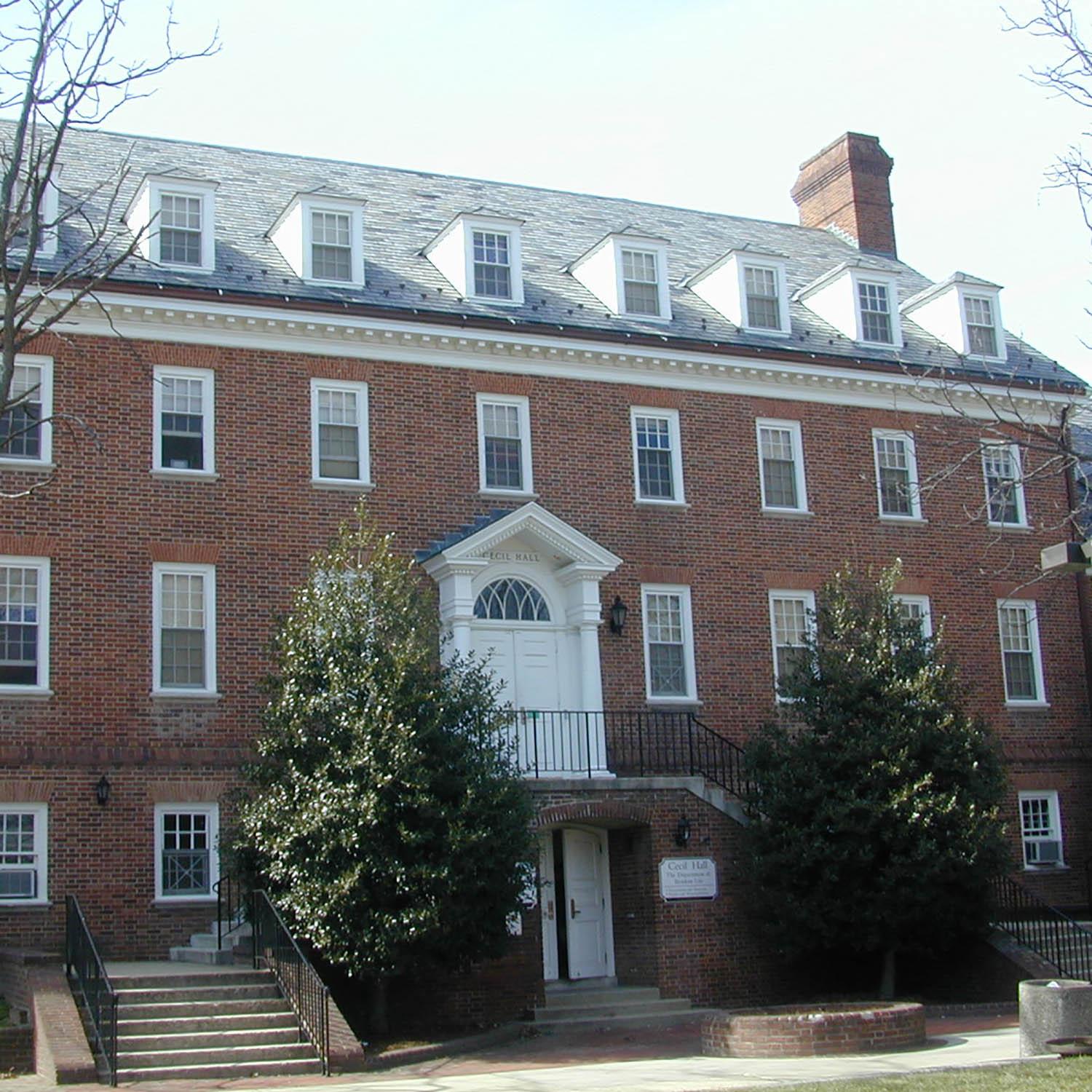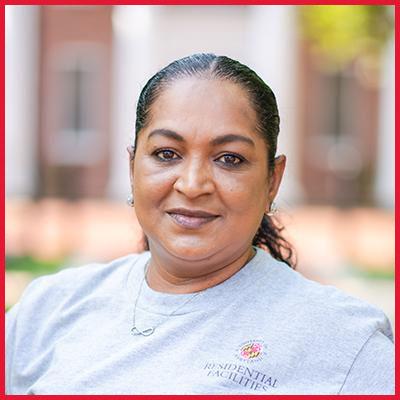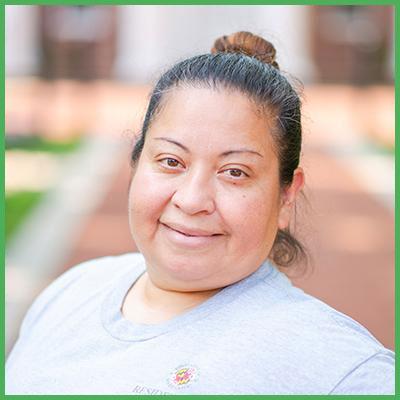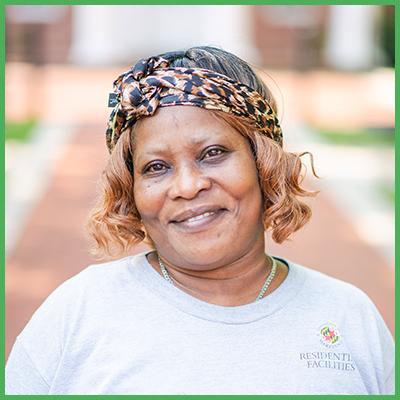
Year Constructed
1959
Location
South Hill Community
Building Type
Suites and apartments
Room Type
Singles and doubles
Bathroom Type
Community bathrooms ![]()
![]()
Community restroom ![]()
- Laundry (located on the ground floor of the building)
- Vending Machines
- Wi-Fi
Our residence hall room dimensions and layouts vary — some include single beds, bunk beds, or a combination of both.
- Single Bed:
- Bed Frame: 81 inches (length) × 40 inches (width) × 38 inches (height - headboard)
- Footboard: 23 inches (height)
- Under-bed clearance: 11 inches (height)
- Twin mattress: 36 inches (width) × 75 inches (length)
- Bed Frame: 81 inches (length) × 40 inches (width) × 38 inches (height - headboard)
- Adjustable Bunk Bed:
- Bed Frame: 81 inches (length) × 40 inches (width) × 61 inches (height)
- Bottom bunk frame: 49 inches (height)
- Top bunk frame: 12 inches (height)
- Under-bed clearance: 11 inches (height)
- Twin mattresses (2): 36 inches (width) × 75 inches (length) each
- Bed Frame: 81 inches (length) × 40 inches (width) × 61 inches (height)
- Desk with 1 shelf hutch 42 inches (Width) x 26 inches (Depth) x 30 inches (Height)
- Desk Chair
- Dresser 5 drawer 28 inches (Width) x 20 inches (Depth) x 47 inches (Height)
- Mirror
- Vinyl Tile/Laminate Flooring
- Closet
- Window Blinds
- Kitchen (Apartments Only)
Cecil Hall:
- Lounges
- Study Rooms
- Meeting Rooms
The South Hill Community Service Desk has moved to Calvert Hall for the Fall 2025 semester. Visit Calvert Hall for package and mail pick-up and in-person support.
Building Info
| Category | Specifications |
|---|---|
| Square Feet | 12,792 (NASF), 20,096 (GSF) |
| University Building # | 17 |
| # of Floors | 4 |
| Building Capacity (Number of Students) | Approximately 96 |
| Building/Space Gender | Single-gender, female |
| AC/Non-AC | Non-AC |
Building History
American Indians were the earliest inhabitants of what is now called Cecil County. The first white men to visit the area arrived by ship in the year 1608. The expedition was led by Captain John Smith, and through his written accounts we learn about the Indian tribes who lived along the shores of Cecil's rivers. The Toghwoghs lived by the Sassafras River. John Smith and his men found them to be friendly and of a gentle nature. The natives had never before seen white men and wanted to worship them as gods. The Minquas were located primarily in Delaware, but spread westward into Cecil. The Shawnase were a southern tribe, but they migrated north when they were being killed off in great numbers. They lived near the North East River and became basket makers and fishermen. Some remained even after white men moved to the area. Records show that a few were baptized in St. Mary Anne's Episcopal Church in North East, and one was on the payroll ledgers of Principio Iron Works. The largest tribe the explorers met was the Susquehannock Tribe with 600 people.
Captain Smith encountered the Susquehannocks while exploring the Susquehanna River. They had possession of the land between the North East and Susquehanna rivers whose waters were abundant with fish. Smith described them as the largest men he had ever seen, as if they were giants with big voices. They wore the skins of bears and wolves. Heads and claws remained on the skins as they wore them over the Indian's heads, adding to their larger than life appearance. The Indians met the white men with gifts of skins, bows, arrows, beads, and tobacco pipes. They were friendly with the white men, but could be a powerful force in war. The Susquehannocks were part of the Iroquois Nation of Indians, who considered themselves the most advanced on the east coast, and militarily strong. They frequently absorbed surrounding tribes in territorial wars.
Before leaving the region John Smith and his men explored the North East, Elk, Sassafras and Susquehanna rivers. He gave names to places he visited, many of which were changed by settlers in later years. He also documented descriptions of Indian weapons and eating utensils such as flint knife blades that were lashed to a wooden handle for cutting, and a tool that looks much like a rolling pin, used for the mashing and grinding of corn.
Building Occupants
Students
Building Services
Housekeeping Service Hours:
- Weekdays: Services run from Monday to Friday, starting at 7:30 a.m. and ending by mid-afternoon. We minimize disruption to residents' routines.
- Weekends: Reduced service with restrooms and lounges cleaned once on Saturdays. No regular services on Sundays, which is a day off for our staff.
- Emergency Services: Our team remains on call at all times. Available 24/7 through our Service Center at 301-314-9675.
Trash Removal
Residents are required to take their trash to the dumpsters outside their buildings. Housekeeping handles trash and recycling removal from lobbies, lounges, laundry rooms, and common bathrooms twice a day, ensuring clean and welcoming common areas.
HVAC System
Non Air-Conditioned Building
Cecil Hall’s heating system is activated when the campus transitions to heat, typically in October, based on the forecasted weather. Each room has a convector that circulates warm air from heated water running through the building’s pipes. While residents cannot adjust the temperature or fan speed, supply temperatures are monitored daily by Residential Facilities maintenance staff to ensure comfort.
Floor Plans
View the floor plan of Cecil Hall
Please note: You will need university credentials to log in and view the floor plans.
Housekeeping Staff
CMI (Cleaning Management Institute) Certification Key
capture Certified Housekeeper
capture Advanced Certified Housekeeper
capture Certified Housekeeping Supervisor
capture Certified Housekeeping Trainer
Each border color represents a certification, which is also listed on the staff member’s individual profile.

Juan Escobar
Building Services Manager, South Campus

Kamla Jaipersaud
Supervisor

Lizeth Chavez
Assistant Supervisor

Stacey Porter
Housekeeper

Eric Gresham
Project and Relief Housekeeper

Marta Zelaya
Project and Relief Housekeeper
Maintenance Staff

Moses Ramdeen
Manager of South Campus, Facilities Maintenance

Isaac Samuel
Supervisor

Will Wheatley
Foreman MTC III

Ken Yan
SH MTC II

Romez Flemming
SH MTC II

Chris Watson
SH MTC II

Terrell Stokes
Electrician
Location
Cecil Hall is located at 7549 Calvert Service Lane in College Park.
